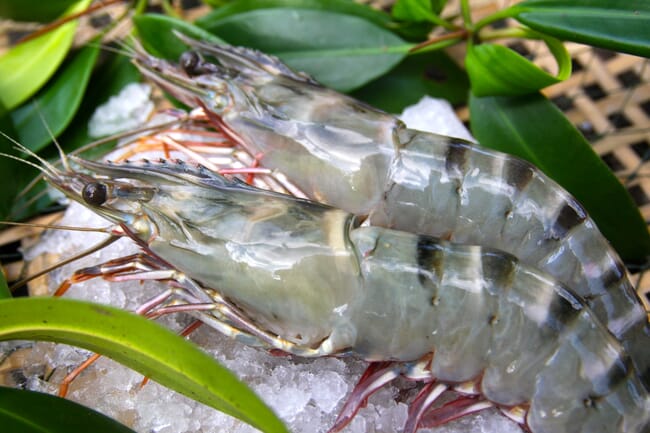The study, published in Nature: Scientific Reports, compared the quality of adult shrimps exposed to a slightly acidic marine environment (with a pH level of 7.5) with ones kept in normal seawater (with a pH level of 8).

After 28 days, the researchers found that tiger shrimp in the acidic environment had a slightly lower amino acid content than the cohort kept in the normal pH environment (17.6 percent and 19.5 percent respectively). The shrimp in the acidic environment also had a mortality rate that was 13 percent higher than the control group.
Reduced in amino acid concentrations can negatively impact the taste of shrimp. These compounds are typically associated with umami flavours. In this study, the researchers noted lower levels of glutamate and aspartic acids in shrimp kept in the acidic environment.
A blind taste test with volunteers found that the acidic rearing environment negatively impacted the taste and appearance of the shrimp. The volunteers expressed a strong preference for shrimp reared in normal seawater.
These results offer additional evidence that rising ocean acidity can be linked to a decline in shrimp quality. The comparatively high mortality rate in the “acidic” group is also of concern. Tiger shrimp are a key aquaculture export for Taiwan – increased ocean acidity could have major implications for the industry.




